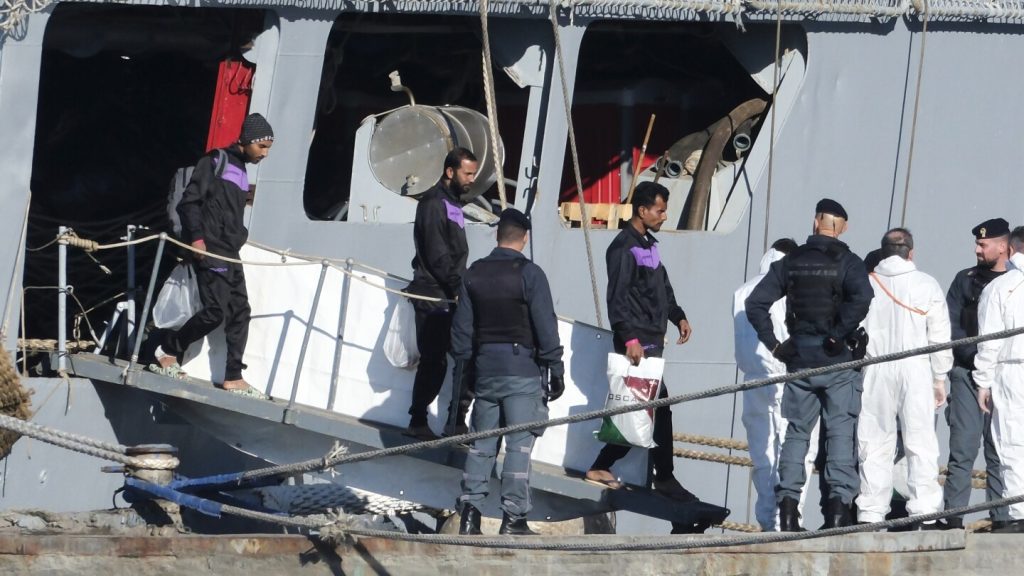Meloni’s plan to screen asylum seekers in Albania was stopped by a court in Rome, leading to the return of seven migrants to Italy. This is the second time this has happened, as the first 12 migrants were also returned last month. The courts are now waiting for a ruling from the EU court of justice to determine if the countries of origin for the migrants are safe for repatriation. This decision has angered Meloni’s government, which is trying to find solutions to the influx of migrants arriving in Italy seeking better opportunities in Europe.
The court’s decision was based on the need to clarify which countries are considered safe and to determine the appropriate procedures for repatriation. The ruling clarified that the exclusion of a state from the list of safe countries does not prevent the repatriation or expulsion of migrants whose asylum applications have been rejected. Italy had entered into a five-year agreement with Albania to operate two migrant centers capable of screening up to 3,000 migrants a month for asylum or potential return to their home countries. However, human rights groups and NGOs have criticized the agreement, claiming it violates international laws.
Despite the opening of the screening centers in Albania, Italy has not identified anywhere close to the expected number of migrants for screening. The migrants sent to Albania must be adult males traveling alone from countries deemed safe. The agreement has been viewed as a dangerous precedent by various organizations due to concerns about potential violations of international laws. The situation has put pressure on Italy to find effective solutions to manage the influx of migrants arriving on Italian shores.
The migrants transferred to Albania must be adult males without family members and from countries considered safe for repatriation. The plan to screen asylum seekers in Albania has faced setbacks, with courts challenging the program and requiring clarification on the countries deemed safe for repatriation. The issue has caused tensions within the Italian government as they search for ways to address the arrival of migrants seeking asylum in Europe. The ultimate decision on the fate of these migrants will depend on the ruling from the EU court of justice in Luxembourg. Italy and Albania’s agreement to operate migrant screening centers continues to face scrutiny from international organizations concerned about potential violations of international laws.


